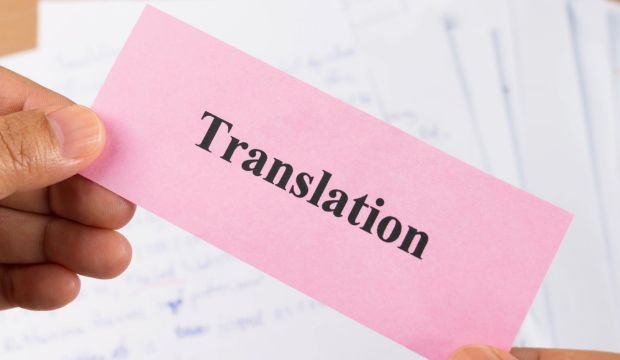In an increasingly interconnected world, where cultural exchanges and global interactions have become the norm, the role of translation services in bridging cultures has never been more significant. Within the United Kingdom (UK), translation services have evolved from serving local communities to facilitating global connections, playing a pivotal role in fostering understanding, communication, and collaboration across linguistic and cultural divides. This article traces the journey of translation services UK from local roots to global impact, exploring their role in bridging cultures and promoting cross-cultural exchange.
Local Roots: Serving Diverse Communities
The story of UK translation services begins at the grassroots level, where translators and interpreters serve diverse communities within local neighborhoods and cities. As the UK has become home to people from around the world, translation services have played a crucial role in ensuring that individuals with limited English proficiency have access to essential services, information, and resources.
In hospitals and healthcare settings, interpreters facilitate communication between healthcare providers and patients, ensuring that medical advice, treatment options, and informed consent are accurately conveyed across language barriers. In schools and educational institutions, translators help students and parents navigate enrollment procedures, access educational materials, and participate in parent-teacher conferences.
Moreover, in legal settings, interpreters assist individuals in understanding their rights, navigating the justice system, and accessing legal services. From police interviews and court proceedings to immigration hearings and asylum applications, translation services ensure that all individuals have equal access to justice and due process, regardless of their language proficiency.
Expanding Horizons: Facilitating International Trade and Diplomacy
As the UK has expanded its global reach and engagement, translation services have played an increasingly important role in facilitating international trade, diplomacy, and cultural exchange. In the realm of business, translation services enable UK companies to communicate effectively with international clients, negotiate trade agreements, and expand into new markets.
From translating business contracts and marketing materials to providing interpretation services during international conferences and negotiations, translation services help UK businesses overcome linguistic and cultural barriers, navigate unfamiliar markets, and forge strong relationships with partners around the world. In doing so, they contribute to the growth and competitiveness of UK companies in the global marketplace.
In the realm of diplomacy, translation services are indispensable for facilitating communication between governments, international organizations, and diplomatic missions. From translating diplomatic agreements and treaties to providing interpretation services during high-level meetings and summits, translation services play a crucial role in advancing the UK’s diplomatic objectives, promoting international cooperation, and fostering peace and stability on the global stage.
Cultural Exchange: Celebrating Diversity and Promoting Understanding
Translation services also play a vital role in promoting cultural exchange, celebrating diversity, and fostering mutual understanding between people from different backgrounds. In the UK, where over 300 languages are spoken, translation services enable individuals to express themselves in their native language, share their cultural heritage, and connect with others who share similar experiences and traditions.
From translating literature, poetry, and art to providing interpretation services during cultural events and festivals, translation services help bring people together, break down stereotypes, and promote appreciation for the richness and diversity of human culture. By facilitating cross-cultural dialogue and exchange, translation services contribute to building a more inclusive, tolerant, and interconnected society in which all voices are heard and valued.
Challenges and Opportunities in the Digital Age
In the digital age, translation services face both challenges and opportunities as they navigate the rapidly evolving landscape of technology and globalization. While advances in machine translation and artificial intelligence have made translation more accessible and efficient, they have also raised concerns about the quality, accuracy, and cultural sensitivity of automated translations.
Human translators and interpreters remain indispensable in ensuring the accuracy, nuance, and cultural relevance of translations, particularly for complex or sensitive content. Moreover, human expertise is essential for navigating the nuances of language and culture, interpreting context, and capturing the subtleties of tone and intent that may be lost in machine translation.
Translation services in the UK must embrace technological advancements while upholding the principles of professionalism, accuracy, and cultural sensitivity. By combining human expertise with innovative technology, translation services can meet the growing demand for multilingual communication, facilitate global connections, and bridge cultures in an increasingly interconnected world.
Conclusion
In conclusion, the journey of UK translation services from local roots to global impact reflects the evolving nature of communication and cultural exchange in the modern world. From serving diverse communities within local neighborhoods to facilitating international trade, diplomacy, and cultural exchange on the global stage, translation services play a vital role in bridging cultures, promoting understanding, and fostering connections between people from different linguistic and cultural backgrounds.
As the UK continues to navigate its position in an increasingly interconnected world, the importance of translation services in facilitating communication, promoting cultural exchange, and fostering cross-cultural understanding will only continue to grow. By embracing diversity, celebrating cultural heritage, and promoting multilingualism, translation services contribute to building a more inclusive, tolerant, and interconnected society in which all individuals have the opportunity to thrive and succeed.











